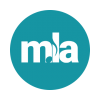The Cataloging and Metadata Committee is sponsoring three sessions at the MLA/TLA Conference, to be held online, March 1-5, 2021. Details of each session are below:
Cataloging and Metadata Town Hall
Monday, March 1, 4:30-5:55 ET
Speakers: Hermine Vermeij, Karen Peters, Rebecca Belford, Keith Knop, Kevin Kishimoto, Kathy Glennan, Damian Iseminger
This session features updates and special topics in music cataloging and metadata as well as an open discussion period; it is a forum for sharing information on important topics that do not each require their own program sessions. Speakers will provide up to date information on changes to RDA (as well as LC-PCC Policy Statements and MLA Best Practices), LCGFT, LCMPT, LCDGT, and MARC. Special topics this year include the new RDA Toolkit and an update on the MLA Linked Data Working Group (LDWG).
Provider-Neutral Cataloging for Digital Scores
Wednesday, March 3, 12:00-1:25 ET
Speakers: Chuck Peters, Keith Knop
In this session, cataloging guidelines and procedures necessary to create provider-neutral bibliographic records for digital scores will be examined. Existing documentation, primarily from the PCC Provider-Neutral E-Resource MARC Records Guide and OCLC Bibliographic Formats and Standards, will be applied to examples of digital scores to create bibliographic records in MARC. Time for questions and discussion will be included.
Meeting the Need for Metadata Accessibility and Usability: Ergonomics and Adaptive Technology for Producers and Consumers
Thursday, March 4, 3:00-3:55 ET
Speakers: Michelle Hahn, Tracey Snyder, Kristi Bergland, Kathy Glennan, Kurt Hanselman, Ann Churukian, Joshua Henry
Concerns of accessibility touch on many aspects of the library world. What systems and tools, such as speech recognition software, exist to aid technical service staff when completing their work, whether it be full cataloging or database maintenance? Is there an understanding in the wider community about ergonomic best practices to aid in a less painful career of computer work? Are there accessibility best practices for formatting documentation and web resources? Are there systems and tools in place to then help our patrons access the metadata we create for our catalogs? Library data is highly structured, creating the need for robust software to help those with health concerns such as arthritis and repetitive strain injuries (RSIs) to input the data. Our posture and workspace layout and functionality can help prevent arthritis and RSIs or lessen the pains of these health troubles. The way our data is arranged, punctuated, and displayed helps govern the way assistive devices perform. This in turn affects its usability for library users. Is our data consumable for those needing such devices or do we turn them away in an effort to be more accessible to machines? Hear first-hand how speech recognition software, ergonomic best practices, and screen readers break down accessibility barriers. Engage with your colleagues to learn more about what we can do to create better ergonomic workflows and better serve blind and visually impaired users with our data.
